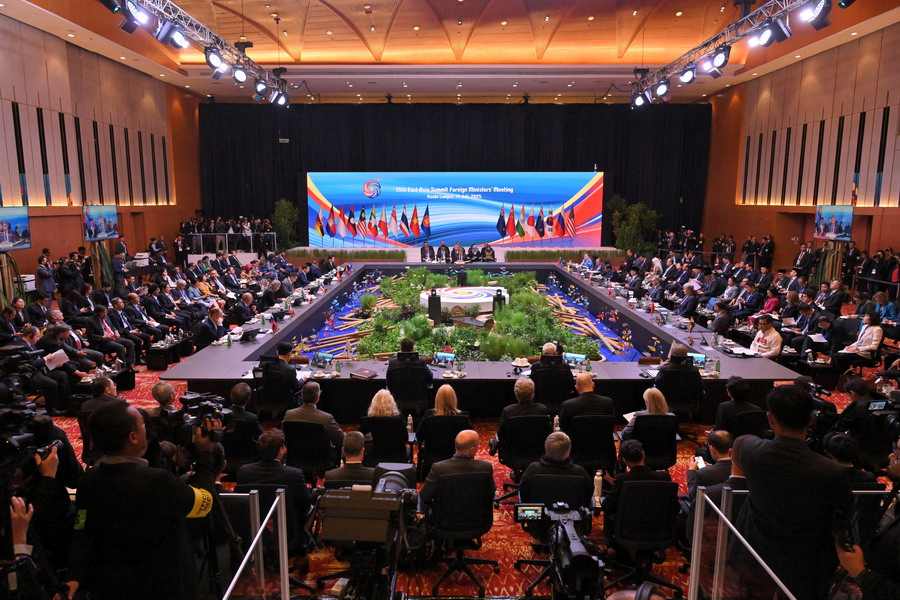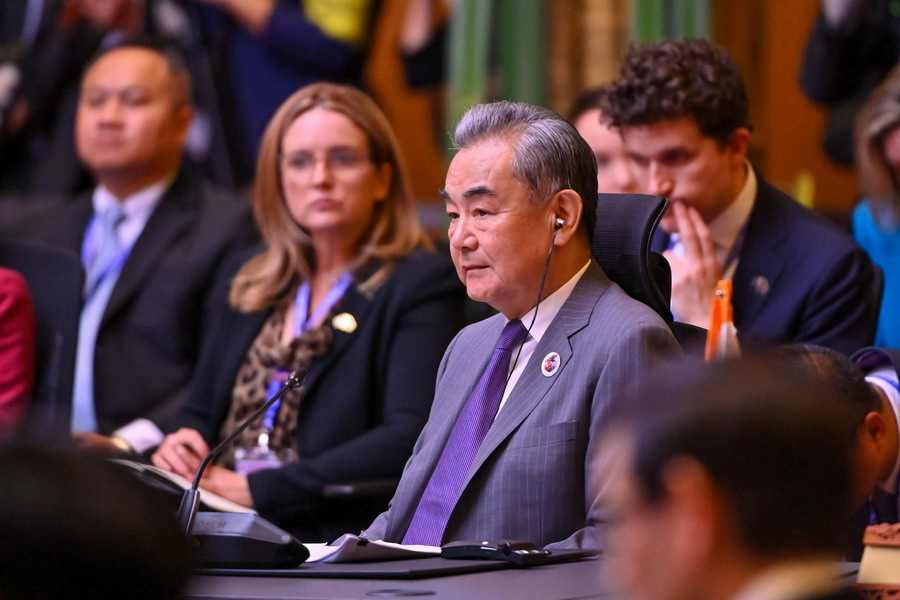Kuala Lumpur, July 11 (AseanAll) — On July 11, 2025, the 15th East Asia Summit Foreign Ministers' Meeting was held in Kuala Lumpur. Member of the Political Bureau of the CPC Central Committee and Chinese Foreign Minister Wang Yi attended the meeting and delivered remarks.

Wang Yi noted that this year marks the 20th anniversary of the establishment of the East Asia Summit. All parties should seize this opportunity to enhance mutual understanding and trust, uphold peace and stability, and promote development and prosperity. China put forward three proposals:
First, return to dialogue. The original intention of the Summit is to carry out constructive dialogue and enhance strategic mutual trust. However, certain countries outside the region have deviated from this track in recent years, frequently using the Summit platform to hype up differences, attack other countries, and interfere in internal affairs. Wang Yi expressed the hope that all parties can respect each other, communicate in good faith, and focus on increasing understanding and cooperation. China supports the issuance of a commemorative declaration on the 20th anniversary of the Summit this year to chart the course for the future development of the Summit.
Second, return to development. It is important to keep the focus on development, the greatest common denominator, and through pragmatic cooperation, strive to ensure that people in East Asia live better lives. Unilateralism and protectionism are short-sighted and dangerous. The best choice for all parties is to make the pie of cooperation bigger and share the fruits of development. China is ready to work with all parties to implement the East Asia Summit Plan of Action and stimulate regional growth vitality.
Third, return to openness. One helpful experience from East Asia cooperation is the practice of open regionalism. China supports the ASEAN-centered regional cooperation architecture, firmly upholds the multilateral trading system, builds a high-level regional free trade network, and promotes regional integration. China opposes bringing Cold War mentality and bloc confrontation into the region, and rejects attempts to create competing structures or exclusive "small circles".
Wang Yi emphasized that the root cause of tensions in the Taiwan Strait lies in the increasingly rampant separatist activities of "Taiwan independence" and the connivance and support by external forces. Some claim to safeguard peace and stability across the Taiwan Strait, but if they truly care about peace and stability across the Taiwan Strait, they must resolutely stop the "Taiwan independence" forces from expanding. Some say that the status quo of the Taiwan Strait should not be changed, but the fact that Taiwan and the mainland both belong to one and the same China is the fundamental status quo of the Taiwan Strait. It is the sacred mission of every country to safeguard its sovereignty and territorial integrity. Wang Yi expressed the hope that all countries will continue to unequivocally uphold the one-China principle, oppose any form of "Taiwan independence", and support China's reunification.

Wang Yi also elaborated on China's solemn position on the South China Sea issue.
On the same day, Wang Yi attended the ASEAN Regional Forum Foreign Ministers' Meeting and continued to meet with foreign ministers of relevant countries.